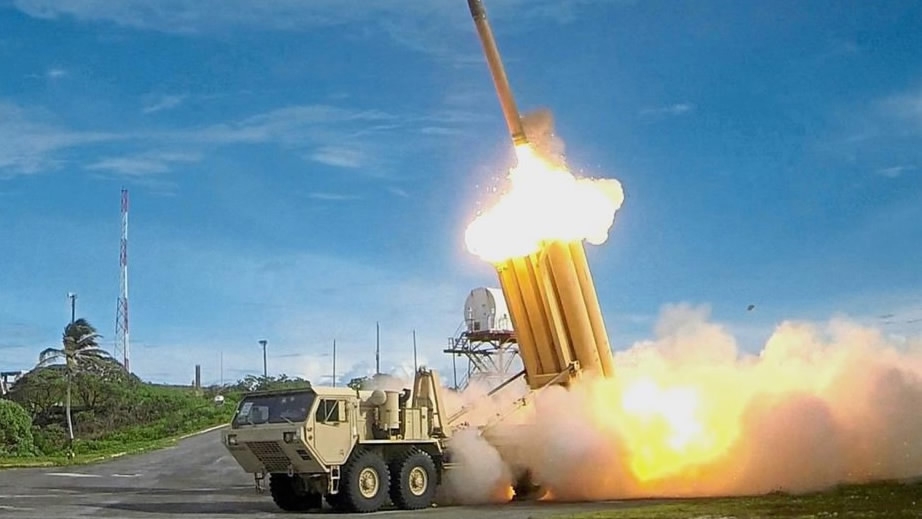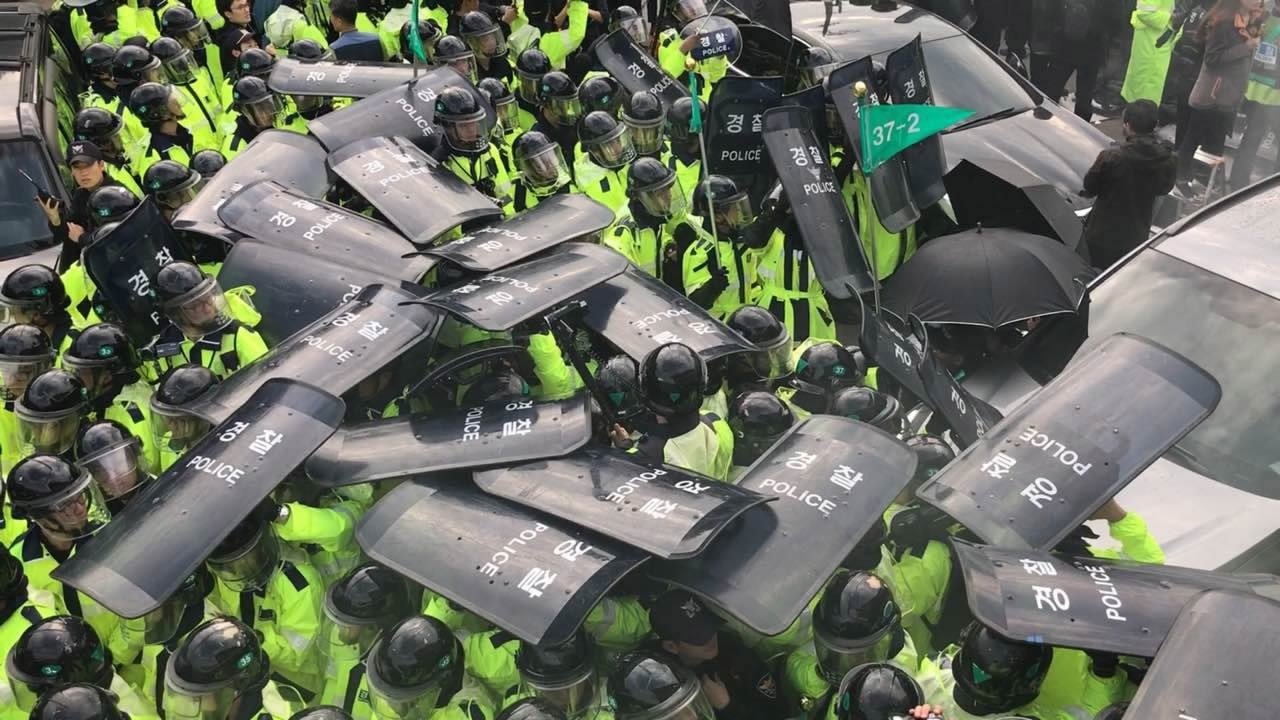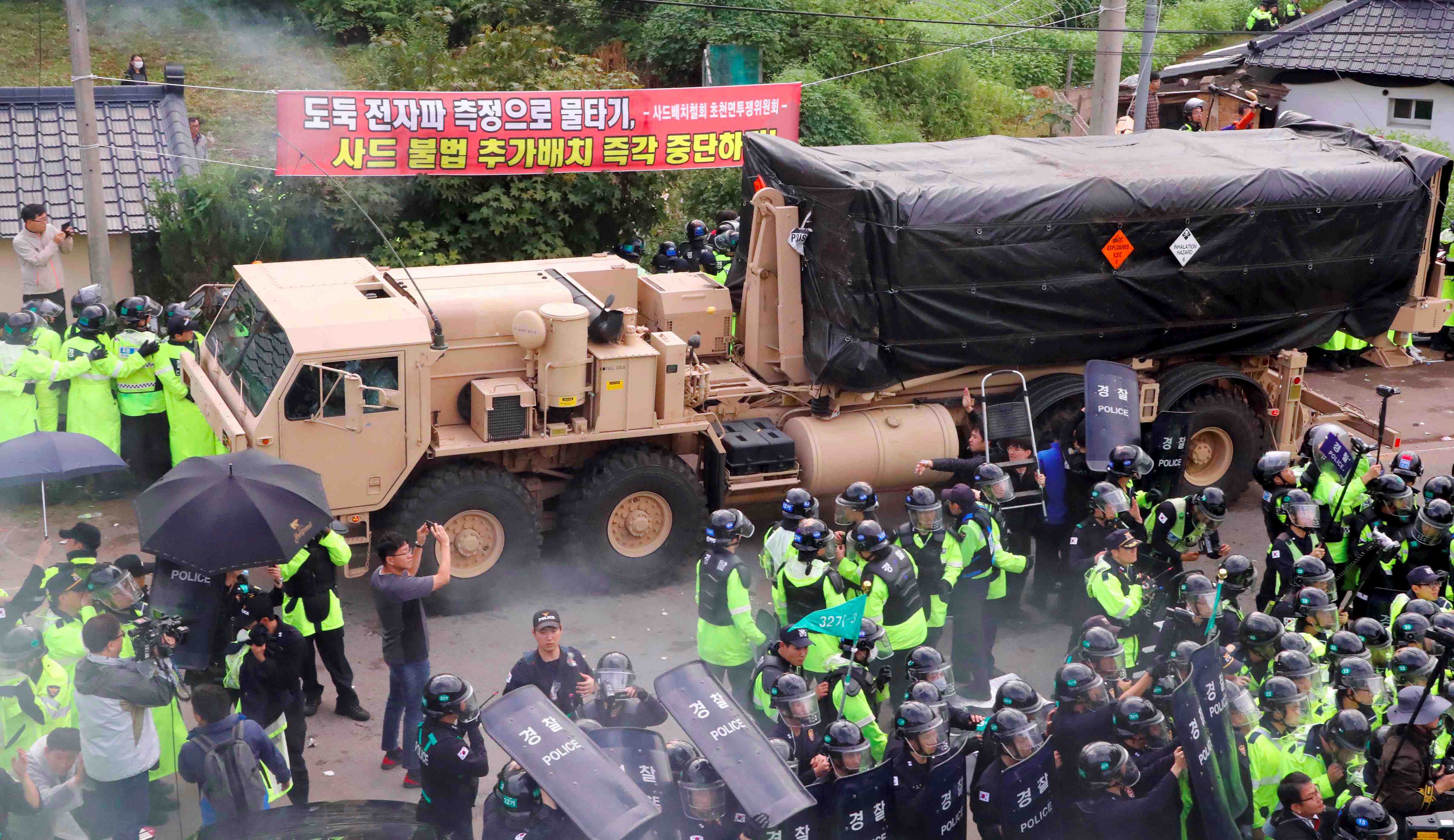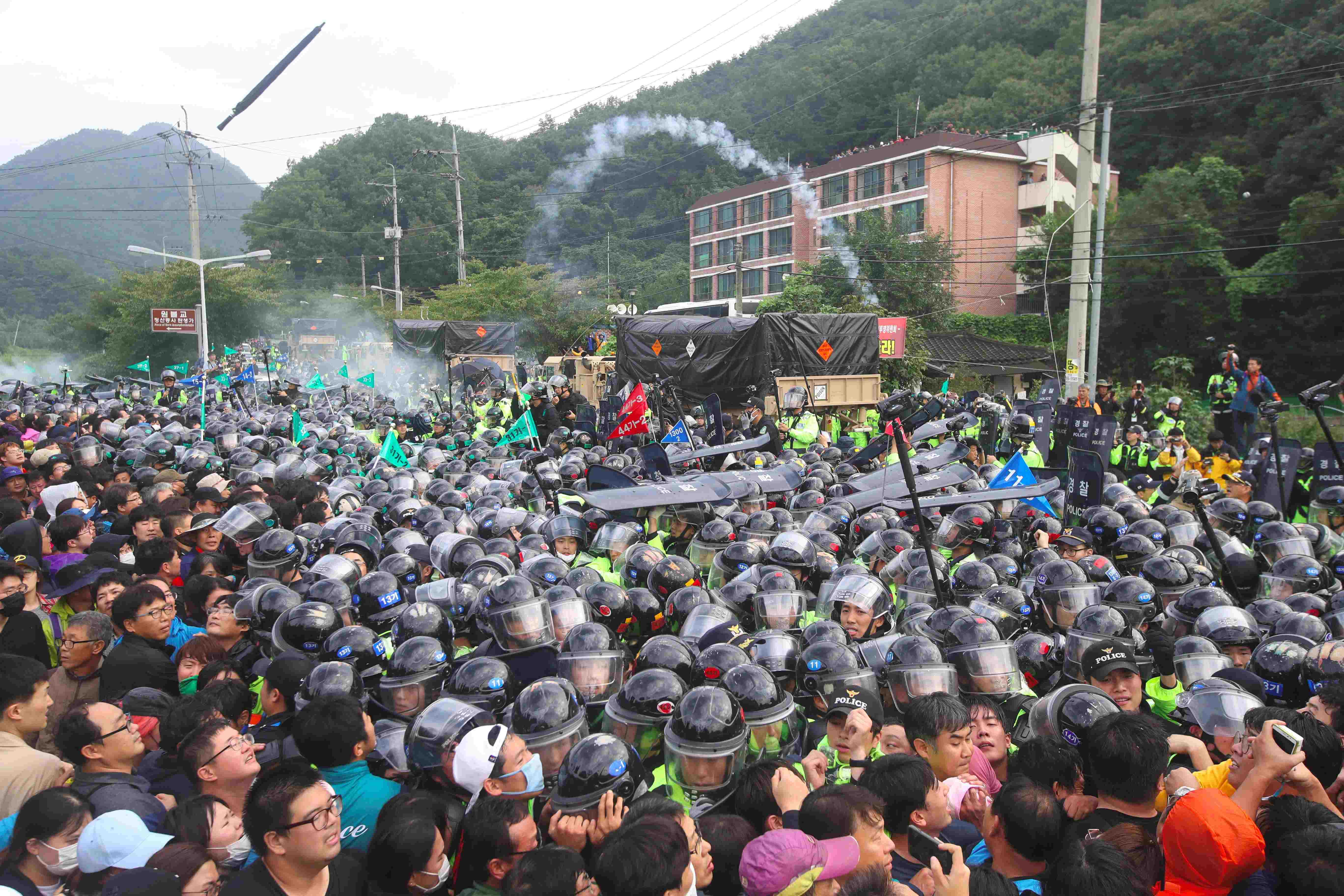
Politics
15:31, 08-Sep-2017
What can China do in response to THAAD deployment in South Korea?
CGTN

The remaining elements of the US Terminal High Altitude Area Defense (THAAD) anti-missile system were transported to the deployment site in South Korea on Thursday morning.
Neighboring countries, including China and Russia, have strongly opposed the system's deployment, seeing it as threat to the regional strategic balance and damaging to the security interests of other countries.
So faced with provocation from the US and South Korea, what countermeasures can China take in response?
First of all, China could speed up building up its nuclear deterrence, said an editorial published in the newspaper Global Times.
China has maintained a low profile over its nuclear armaments for decades and has pledged not to use them as a threat to non-nuclear states.
But now that the THAAD system has been placed on China’s doorstep, Beijing should become more powerful in its nuclear deterrence to safeguard its own interests.

Riot police block South Korean residents and protesters as parts of the THAAD system arrive in Seongju County on September 7, 2017. /CGTN Photo
Riot police block South Korean residents and protesters as parts of the THAAD system arrive in Seongju County on September 7, 2017. /CGTN Photo
China also needs to develop a radar jamming facility, said Shi Jiangyue, a senior military commentator.
The THAAD system’s radar can probe deep into Chinese territory and were China to fire a missile, the system’s radar could detect the signal and give the US warning, said Shi.
Guo Songmin, a former air force pilot and now a military commentator, suggested imposing economic sanctions on South Korea, just as China has done against the Democratic People’s Republic of Korea (DPRK).
South Korea has ignored Beijing’s repeated warnings and insisting on installing THAAD, something which is an open challenge to China, said Guo, adding that China’s economic sanctions will be a hard punch to South Korea.

Riot police block South Korean residents and protesters as parts of the THAAD system arrive in Seongju County on September 7, 2017. /CGTN Photo
Riot police block South Korean residents and protesters as parts of the THAAD system arrive in Seongju County on September 7, 2017. /CGTN Photo
Seoul has been highly dependent on the Chinese market ever since the two countries established diplomatic ties. As the biggest beneficiary of the Chinese economy, South Korea would not have recovered quickly from the economic crisis in 1990s but for the pull of the Chinese market.
“The US has set plenty of examples on this regard, and we need to show the world that whoever angers China shall bear the consequences,” Guo underscored.
How does THAAD work?
The ground-based missile defense system is designed to shoot down short-, medium- and intermediate-range ballistic missiles during the terminal phase, as they descend.
It’s different from conventional defense missiles, which are designed to get close to a target and self-detonate to damage or deflect the threat.
According to THAAD’s manufacturer, Lockheed Martin, THAAD is more like hitting a bullet with a bullet: the missiles rely on infra-red seeker technology to locate and hit the target head on, completely destroying it.
How does THAAD threaten China?

Riot police block South Korean residents and protesters as parts of the THAAD system arrive in Seongju County on September 7, 2017. /CGTN Photo
Riot police block South Korean residents and protesters as parts of the THAAD system arrive in Seongju County on September 7, 2017. /CGTN Photo
The US claims that the installation of THAAD will be able to better defend South Korea against growing threats from the DPRK.
But analysts argue that THAAD has only limited use against the DPRK, as it would not be able to hit short-range missiles that do not reach high altitudes, hinting the radar may be the real intention for the deployment.
The sophisticated radar capabilities included in THAAD can help improve the effectiveness of the US ballistic missile defense system. It can detect most of China's strategic missiles, which could give the US a major advantage in the event of war.
China opposes the THAAD system’s installation, saying it undermines China's strategic security interests. Beijing is concerned that the US is using South Korea to contain China in the future. The Global Times accused Seoul of “tying itself to the US chariot and turning into an arrogant pawn of Washington in the latter’s military containment against China.”
“If South Korea insists on becoming a US puppet, China will have to act against it,” the paper said.

SITEMAP
Copyright © 2018 CGTN. Beijing ICP prepared NO.16065310-3
Copyright © 2018 CGTN. Beijing ICP prepared NO.16065310-3